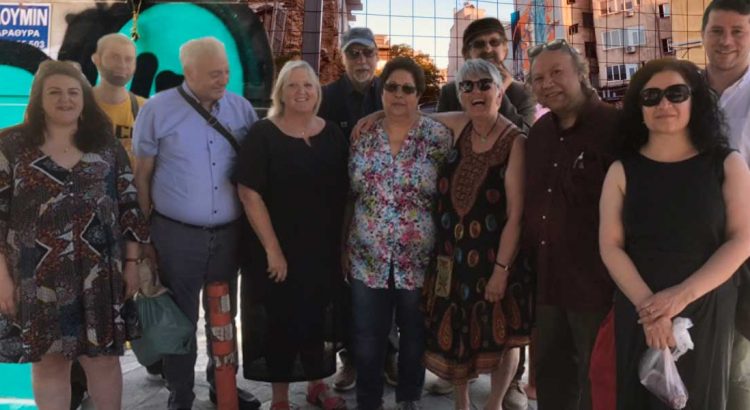 Introduction:
Introduction:
Greek Donation is an initiative aimed at supporting and promoting Hellenism worldwide. Hellenism refers to the culture, history, and language of ancient Greece, which have had a profound influence on various aspects of modern society. This article discusses the significance of Greek Donation in preserving and spreading Hellenism globally.
Preservation of Cultural Heritage:
Greek Donation plays a crucial role in preserving the rich cultural heritage of ancient Greece. Through financial and material contributions, the initiative facilitates the restoration and maintenance of historical sites, artifacts, and monuments that hold immense historical and cultural value. These efforts ensure that future generations can explore and appreciate the legacy of ancient Greece.
Supporting Educational Programs:
One of the primary objectives of Greek Donation is to support educational programs that promote Hellenism. By providing funding and resources for the development of educational materials, scholarships, and institutions, the initiative empowers individuals to explore the language, literature, philosophy, and sciences that shaped ancient Greece. This support is fundamental in spreading knowledge about Hellenistic achievements and their contributions to various fields.
Promoting Hellenic Studies:
Greek Donation actively promotes the study of Hellenic culture worldwide. It collaborates with universities and research institutions to establish chairs, institutes, and departments dedicated to the study of ancient Greece. These endeavors foster academic research, encourage the publication of scholarly works, and create platforms for intellectual exchange. By nurturing Hellenic studies, Greek Donation ensures that the knowledge and understanding of ancient Greece continue to thrive.
Preserving Language and Literature:
The Greek language is a cornerstone of Hellenism. Greek Donation recognizes the importance of preserving this ancient language by supporting initiatives that promote Greek language education. Through financial aid, language courses, and immersion programs, the initiative enables individuals to learn and appreciate the language that birthed many scientific, philosophical, and literary works. Additionally, greekdonation.com Greek Donation facilitates the translation and publication of significant literary texts, making them accessible to a wider audience.
Fostering Cultural Exchange:
Greek Donation actively fosters cultural exchange between Greece and other nations. It supports exhibitions, festivals, and events that bring Hellenic culture to different parts of the world. These initiatives provide an opportunity for individuals from diverse backgrounds to experience Greek art, music, dance, and cuisine, thereby fostering intercultural understanding and appreciation.
Revitalizing Local Communities:
Greek Donation recognizes the significance of revitalizing local communities in Greece. By supporting sustainable farming, traditional crafts, and community-based tourism, the initiative strengthens the economic and social fabric of these communities. This support not only preserves local traditions but also creates opportunities for Hellenistic cultural experiences beyond archaeological sites.
Conclusion:
Greek Donation plays a vital role in supporting and promoting Hellenism worldwide. Through its various initiatives, the initiative preserves cultural heritage, supports educational programs, fosters cultural exchange, and revitalizes local communities. By embracing the principles of Greek Donation, individuals and organizations contribute to the preservation and dissemination of Hellenism, ensuring that the legacy of ancient Greece continues to inspire and enrich our modern society.

